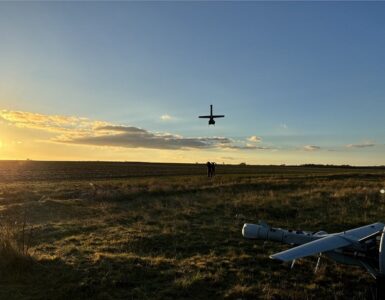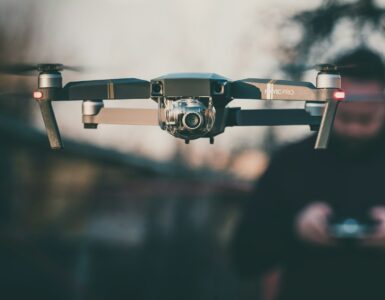ECONOMIES AT WAR
The Russian venture investment market shrunk significantly compared to historic highs of 2021 both in terms of deals number and the amounts invested. Only 85 deals were closed for a total of $658 million during the first six months of 2022, compared to 225 transactions valued at $1.9 billion a year before, according to Dsight analytics firm. [Source: Forbes]
Venture investments in Belarus companies also decreased by 64% in the first half of 2022 year-on-year to just $3.1 million, according to a research by Dsight company, Belarus sided with Russia in the war against Ukraine, with Russia-Belarus RBF Ventures fund remaining the only source of venture capital in the country. [Source: RBC]
IT UNDER PRESSURE
Employees of the Russian IT companies, telecommunications providers and mass media will not be subject to a partial military mobilization that Russia announced on September 21. The Russian Ministry for Digital Development published guidelines for IT staff to avoid being called. [Source: Telegram channel of the Ministry for Digital Development]
2GIS, a Russian mobile application providing digital maps and local guides for Russia and other countries, was removed from AppStore. Russian bank Sber, which has been under sanctions since the start of Russia’s invasion of Ukraine, owns 72% of the company shares. [Source: RBC]
Finland’s government has frozen local assets of Russian Internet giant Yandex due to ongoing EU sanctions against the company’s co-founder, according to a report by Finnish newspaper Helsingin Sanomat. Yandex’s co-founder Arkadiy Volozh, who left all positions in the company, continued to oversee the subsidiary in Finland according to the report. [Source: Kommersant]
ANALOGUES TO THE RESCUE
The Eurasian Economic Commission (EEC) proposed the Russian government to design a semiconductor industry development program for the countries of the Eurasian Economic Union (Russia, Kazakhstan, Belarus, Armenia, Kirghizia) pointing to similar efforts by the US and the European Union. In a letter to the government the EEC cites a critical dependency on foreign suppliers and a 15-year development lag behind world leading producers as the main reasons for the program. [Source: Kommersant]
Sber, the biggest Russian bank, has completed a transition of its automatization warehouse logistics platform SberShuttle to locally produced software to replace foreign-made products. The new Robotics Management System, capable of synchronized management of warehouse robots, was designed at Sber’s own Laboratory of Robot Engineering. [Source: Spark]
STARTUPS
Russian online marketplace for second-hand gadgets DamProdam has entered Armenia’s market in partnership with telecommunications provider Armenia Telecom under the brand DramDram. One of the reasons for choosing Armenia was the relocation here of nearly 50,000 Russian managers seeking safe haven after the start of the Ukrainian war. [Source: RB]
Russian face recognition systems maker NtechLab is going to open an office in Thailand till the end of 2022 to expand its presence in the South Asian markets as countries in the region are set to make security legislation stricter which can drive demand for NtechLab’s products. Main exports priorities of NtechLab are Thailand, Malaysia, Indonesia, Vietnam, and the Philippines where the company started cooperation with nearly 20 vendors. [Source: Kommersant]
Russian IT company Positive Technologies announced a secondary public offering (SPO) in a move to sell nearly 4% of its shares and enhance free-float to 25% on the Moscow Stock Exchange. In the first half of 2022, Positive Technologies’s profits rose by 78% year-on-year to $60 million. [Source: Kommersant]
DIGITAL GOVERNMENT
Turkmenistan’s Ministry of Foreign Affairs wants to establish a national digital system to digitize its work and correspondence with other countries. Digital diplomacy will also help promote the positive image of Turkmenistan abroad. [Source: Turkmenportal]
Kazakhstan’s Ministry of Defense will hire 13 officers who will be charged with the implementation of IT technologies like blockchain, artificial intelligence (AI), and cloud computing. Through digital transformation the Ministry seeks to enhance the transparency of expenses, resource optimization, and start to use virtual reality (VR) tactical simulators. [Source: Telegram channel Bloqchain-Central Asia]
KAZAKHSTAN
The Blockchain Technologies Association of Kazakhstan translated four books about blockchain and cryptocurrency––The Blockchain Revolution, The Age of Cryptocurrency, The Truth Machine, and A Brief History of Money––into Kazakh language. The books will be available for students of Kazakhstan’s high schools to stimulate their interest in advanced technologies. [Source: InBusiness.kz]
Kazakhstan President Kasym Zhomart Tokaev has met with EPAM Systems founder Arkadiy Dobkin and Coursera CEO Jeff Maggioncalda during his US visit. The talks wIth EPAM Systems included discussion of a joint technological hub in Astana, the country’s capital, while talks with Coursera concerned the cooperation between the platform and Kazakh high schools. [Source: Kazpravda]
SCIENCE
The newly appointed president of the Russian Science Academy (RSA) Gennadiy Krasnikov highlighted AI-based projects as high priority. RSA is going to select two to three prospective projects in each of high priority fields, also including physics, medicine, etc., that could become a breakthrough for the national science and economy. [Source: TASS]
Russian scientists from The National University of Science and Technology MISIS (Moscow) in cooperation with scientists from Université Grenoble Alpes (France) and the University of Tor Vergata (Italy) found a way to increase the service life of perovskite-based solar batteries by five times. The innovation comes through adding a combination of carbon and nitrogen with some other elements, which makes perovskite batteries competitive with silicon ones. [Source: Izvestia]
ROSKOSMOS
The Russian Space Systems, a subsidiary of the Russian state corporation Roskosmos, completed the design of equipment for the global ships satellite-based navigation system. Unlike Marinetraffic, the most popular vessel-tracking service now, Roskosmos’s navigation products will be able to track vessels across the globe including waters distant from shores where Marinetraffic lacks capacity. [Source: Roskosmos]
The Russian Space Systems started to use AI for detecting illegal wood-felling in two pilot regions. AI helps speed up processing of information and reveal the sites that a human being may miss. [Source: Roskosmos]






Add comment